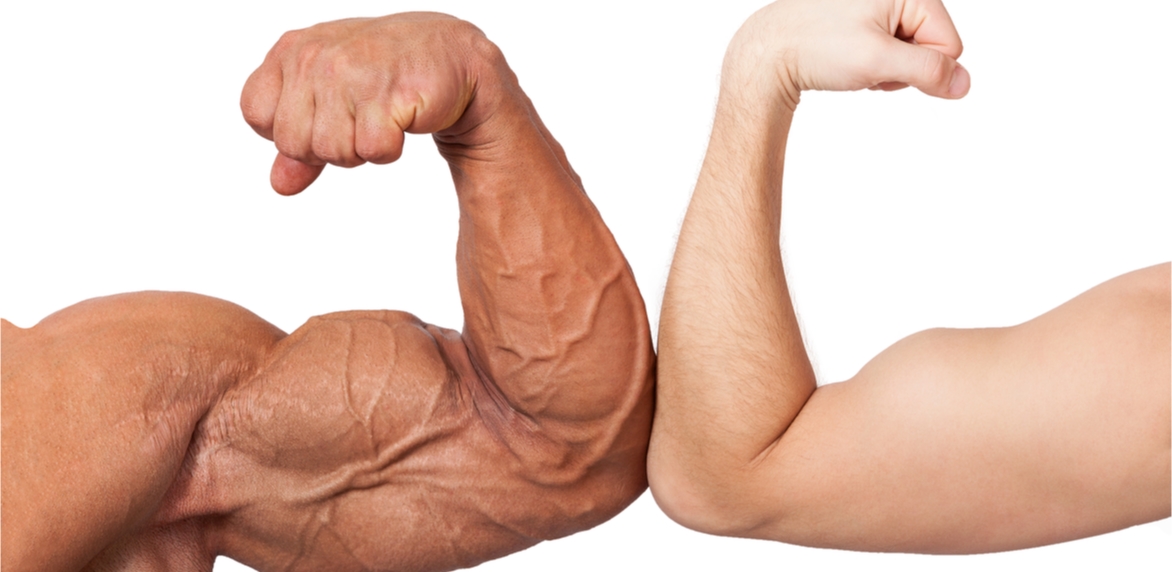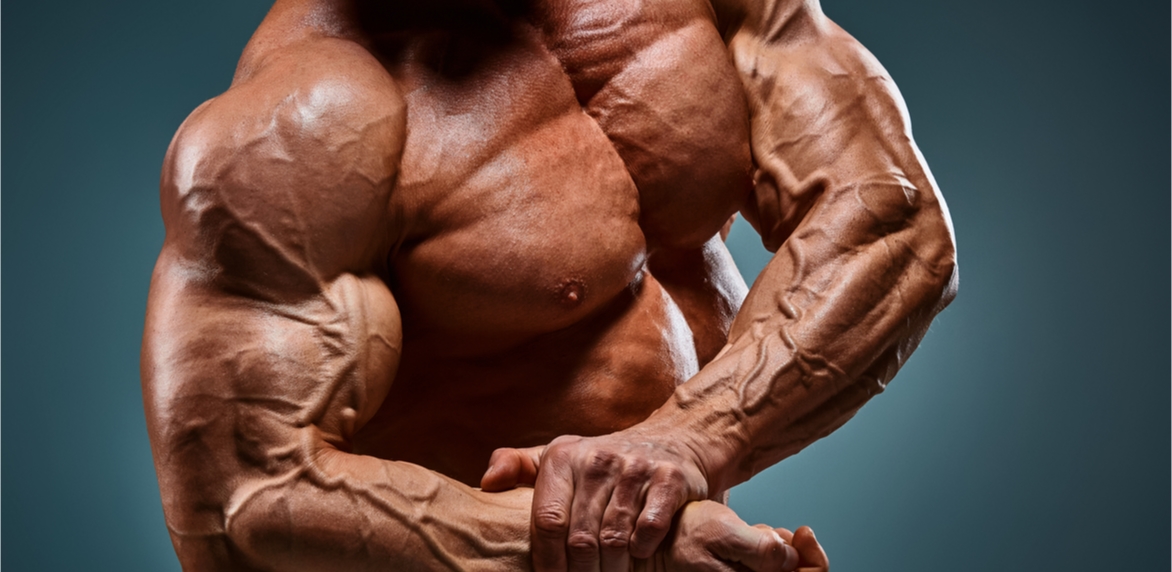Hitting the gym? Consuming a mountain of calories? Doing everything you have been told to increase muscle mass?
For some, muscle mass seems to appear as if by magic onto their bones. They can do a few pull-ups, push-ups and squats and BANG! Biceps, pecs and quads have grown as if someone blew them up with an air pump.
However, for many this is just not the case. For many, putting on muscle is a struggle that is defined by tough gym sessions, prepping 8 meals a day and spending a fortune on multiple differing nutritional supplements.

Multiple environmental factors could be making the difference such as diet or training, but if you have these down where do you go next?
Could it be genetic?
This may seem like a bit of a cop-out, we are not saying blaming genetics is a good thing, however, our DNA does play a key role in our development and understanding this may in fact help you progress and break plateaus.
A few genes that may be culprits are:
A gene that is hailed as the king of sports. A decade ago some companies did whole gene tests for fitness potential just using this one gene (we have come a long way since then). Regardless of the amount of genes we test now, ACTN3 plays a vital role in muscle fibre type with certain variations being linked with more powerful muscles associated with sprinters and powerlifters. Those with this variations can be linked with a higher level of muscle mass overall, their skeletal muscles may predominate in the fast twitch fibres which has a correlation with increased hypertrophy.

Certain variations in this gene have shown to cause greater muscle mass in those who utilise resistance training, tests show that those with more favourable genetic variants had greater arm volume (size) after exercise than those without the variants. Who wouldn’t want bigger guns!
Not every gene here looks at just size, those with variants in their TRHR gene have shown to have a better natural lean body mass, and therefore naturally have a better muscle to fat ratio than others, which is always handy when you’re looking to have that bodybuilder physique.
The gene that encodes the muscle blocker myostatin, mutations in the MSTN gene have shown to have a great impact on muscle mass in animals and we are no exception to the rule.
This is just a small article and there are plenty of other genes that will have an effect on our body mass – we do have around 20,000 genes after all.

It means that some people are gifted for having more muscle mass than others and as you can’t fight your genetics you need to work with them. Luckily there are plenty of genes that you can work with to reach your muscle building goals; ACE, PPARA, NOS3, AGT, AMPD1, etc.
It’s possible that we need to wait for all the research to come out. However, we predict that genetics will leak further into the mainstream of professional and amateur sport, from training planning to nutrition advice.
The future could be bright in this field, it all depends on real world results!